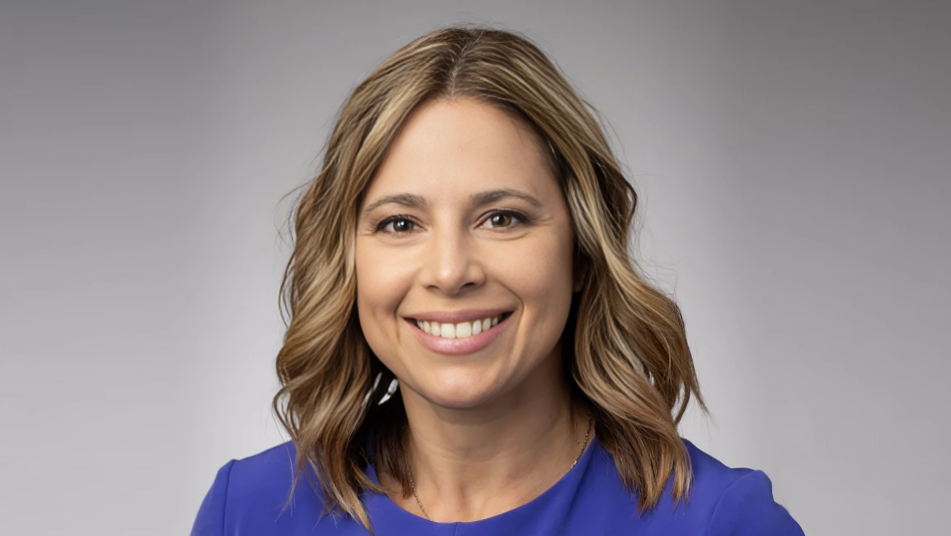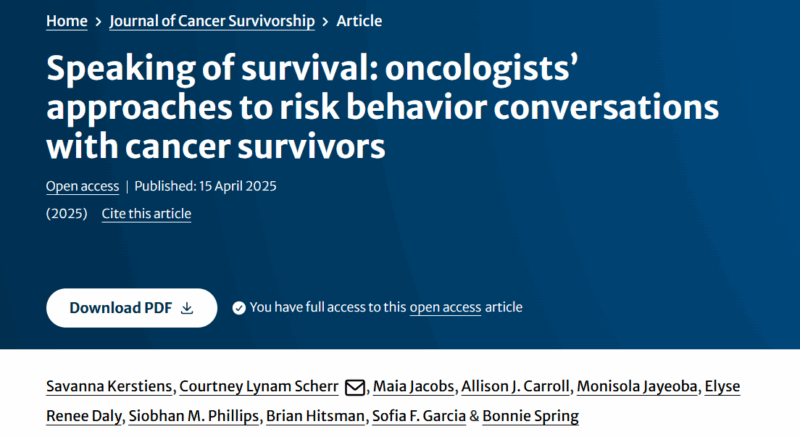
Sami (Papacek) Mansfield: Oncologists don’t bring it up unless the patient does
Sami (Papacek) Mansfield, Founder of Cancer Wellness for Life, shared a post on LinkedIn:
” ‘We don’t bring it up unless the patient does.’
That’s what many oncologists shared in this new study on how they talk about diet, exercise, and smoking with cancer survivors.
I recently reviewed the 2025 article ‘Speaking of Survival’ (Kerstiens et al., Journal of Cancer Survivorship)—and wow, did it hit home. Shout out to Maryam Lustberg for sharing this to hit my linkedin feed!
Here’s the takeaway:
Despite decades of research and clear survivorship guidelines (from ASCO, ACS, NCCN…), conversations about modifiable risk behaviors are often avoided, indirect, or left to other providers. Why?
- Many oncologists are worried about damaging trust or triggering guilt.
- Risk behaviors like weight gain, smoking, and inactivity are seen as ‘too sensitive.’
- Clinicians fear saying the wrong thing—or feel it’s outside their scope.
- And yes, most said they wait for the patient to bring it up.
This pattern, known as benevolent bias, reflects good intentions—but it can lead to poor risk management and survivors underestimating their role in improving long-term health.
Cancer survivors deserve clear, compassionate conversations about what they can do—especially when evidence shows lifestyle changes improve recurrence, treatment effects, and survival.
We don’t need more guidelines.
We need to bridge the gap between knowing and doing.
- Let’s equip our clinicians.
- Let’s invest in programs that support risk communication.
- Let’s stop being afraid to talk about lifestyle change—and start making it part of routine survivorship care.
This is the conversation I’m having across systems, programs, and teams right now.Looking for credible, patient-friendly resources?
Start with the American Institute for Cancer Research A (AICR)—a trusted source for evidence-based guidelines on nutrition and lifestyle.
For a simple, downloadable toolkit, check out the Lifestyle Medicine in Cancer Risk Reduction and Survivorship Toolkit from the American College of Lifestyle Medicine (ACLM).
These resources are free to download—just create a quick (free) account with ACLM.
Perfect for patients, survivors, or professionals looking to support behavior change with science-backed tools.”
Speaking of survival: oncologists’ approaches to risk behavior conversations with cancer survivors
Authors: Savanna Kerstiens, Courtney Lynam Scherr, et al.

More posts featuring Sami (Papacek) Mansfield.
-
Challenging the Status Quo in Colorectal Cancer 2024
December 6-8, 2024
-
ESMO 2024 Congress
September 13-17, 2024
-
ASCO Annual Meeting
May 30 - June 4, 2024
-
Yvonne Award 2024
May 31, 2024
-
OncoThon 2024, Online
Feb. 15, 2024
-
Global Summit on War & Cancer 2023, Online
Dec. 14-16, 2023
